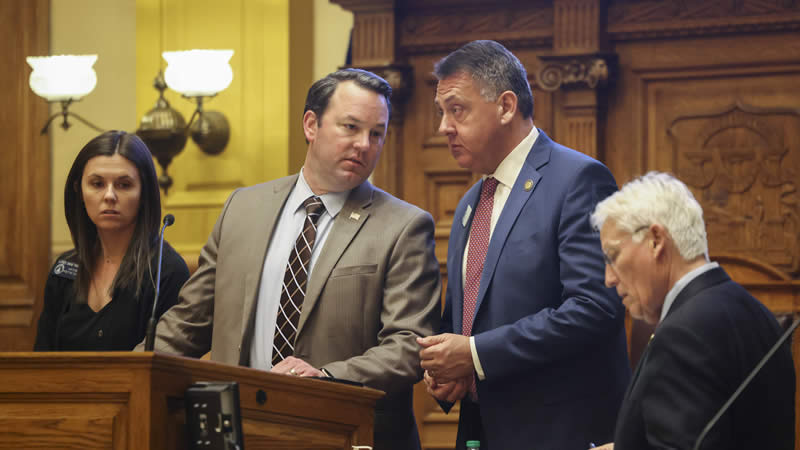During a recent news briefing, key Georgia state Senate Republicans, Lt. Gov. Burt Jones, and Sen. Jason Anavitarte from Dallas, revealed plans to pursue this legislation in 2024. The proposed law might also limit access to other online platforms for children
“It’s important that we empower parents,” Anavitarte said. “A lot of parents don’t know how to restrict content.”
Anavitarte said Georgia’s rules would be modeled on a law Louisiana passed this year. That measure, which takes effect in 2024, says social media services must verify an account holder’s age and can’t let someone younger than 18 join without parental consent.
“Parental Consent Laws for Minors Using Social Media Gain Traction in Multiple States
This year states like Arkansas, Texas, and Utah has all enacted legislation mandating parental permission for minors on social media platforms. Parallel conversations are taking place in Congress, suggesting a wider adoption of such rules.
California recently strengthened its stance, passing a law last year that obligates online platforms to intensify measures safeguarding children’s privacy and welfare.
Sen. Anavitarte mentioned brief communications with Meta Platforms, the parent company of Facebook and Instagram. He and Lt. Gov. Jones intend to delve deeper into discussions with the social media behemoth.

This wave of legislative concern is partly in response to the U.S. Surgeon General Vivek Murthy’s warning last May about the uncertainties surrounding the safety of social media for the younger demographic. Murthy urged tech corporations, parents, and caregivers to act decisively, calling for greater transparency and data sharing from tech firms. He also highlighted the need for policymakers to supervise social media’s safety protocols akin to the regulations applied to products like car seats and infant formula.
In accordance with federal regulations, children under the age of 13 are prohibited from registering on social media platforms. However, evidence shows that these bans are easily circumvented by the young ones.
A study by the Pew Research Center revealed that social media is used by up to 95% of teenagers between the ages of 13 and 17. More than one-third of these teens admit to using these platforms “almost constantly.”
Anavitarte is also working to enhance Georgia’s cyberbullying legislation. The current law mandates that a student who has been found bullying three times be transferred to an alternative school. Anavitarte aims to reintroduce a proposal from 2022 that would require schools to caution students and their parents that some bullying actions could result in criminal stalking charges.
Last year, Meta took the initiative to authenticate users’ ages by allowing them to upload an ID or record a video selfie. They also partnered with a company specializing in age verification. Meta’s goal is to create a secure environment for 13-17-year-olds on Instagram, minimizing unwanted contact from unfamiliar adults.
In a recent move, Anavitarte has also sponsored legislation that prohibits the installation or use of applications like TikTok, Telegram, WeChat, and others on state-owned computers.
Some free speech proponents express concerns that such measures might restrict access to information and could even impede adults from reaching it. These new laws might force platforms to demand government ID for age verification.
This age verification method is already being enforced on certain adult entertainment websites, following laws in states like Louisiana, Utah, and Virginia. The Free Speech Coalition filed a lawsuit against Utah and Louisiana on behalf of adult entertainers, erotica writers, sex educators, and casual porn viewers, arguing that these laws were unconstitutional as they discriminate against particular forms of speech. A Utah judge dismissed the case last week, ruling that the claimants lacked standing to sue due to the specific design of the law.



